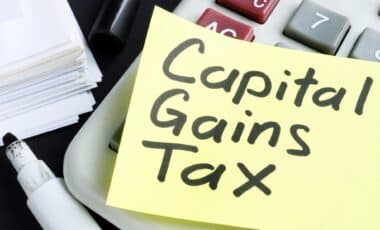As the Australian Taxation Office (ATO) prepares for another tax season, it has announced that capital gains tax (CGT) will be a major focus for scrutiny. In recent years, the ATO has noticed an increase in misreporting by taxpayers, particularly regarding taxable disposals.
With asset sales such as property, cryptocurrency, and shares under its radar, the ATO is using third-party data to track down those who fail to properly report their capital gains. This heightened focus underscores the importance of Australians ensuring they meet their tax obligations, as the ATO is making efforts to close gaps in tax compliance.
Tax experts, including Mark Chapman of H\&R Block, warn that the ATO is prepared to identify discrepancies in tax returns. This year, the ATO’s priority will be to ensure taxpayers are reporting their capital gains accurately, avoiding penalties and fines.
The data provided by various financial institutions, such as mortgage lenders and cryptocurrency service providers, is helping the ATO pinpoint sales that have not been properly declared, amplifying its ability to enforce compliance.
What Is Capital Gains Tax, and How Is It Calculated?
Capital gains tax is applied when individuals dispose of assets like property, shares, or cryptocurrency. The tax is calculated based on the difference between the price at which an asset was purchased and the amount it was sold for. This difference, or profit, is taxable unless specific exemptions apply. For assets held for more than 12 months, taxpayers may be eligible for a 50% CGT discount.
To calculate the taxable capital gain, taxpayers must subtract the asset’s cost base (the price paid for the asset plus any related expenses) from the sale proceeds. Any capital losses may then be deducted from the gain. The resulting figure, the net capital gain, is subject to tax at the individual’s marginal rate. For taxpayers looking to ensure compliance, accurately calculating capital gains is essential for avoiding costly errors.
Common Exemptions to Capital Gains Tax
While CGT applies to most asset disposals, there are some key exemptions to consider. The most well-known exemption is for a taxpayer’s main residence. However, if the property has been used to generate income—for example, through renting it out on platforms like Airbnb or operating a business from home—CGT may apply to the portion of the property used for those purposes. In these cases, homeowners must keep detailed records of when the property was rented out or used for business, as this information is critical for calculating the capital gain on the income-producing portion.
Another exemption is available for small business owners. They may be eligible for CGT concessions, which can reduce or even eliminate CGT liability when selling business assets. These concessions are designed to ease the tax burden on small businesses, but it is essential for business owners to understand the specific criteria to qualify for them.
📉 what records to keep
— ato.gov.au (@ato_gov_au) June 5, 2025
🤔 how to calculate your capital gains tax (CGT) when you dispose of assets
💻 how to report capital gains or losses in your tax return.
Find it here: https://t.co/0XNH48hYiP
ATO Cracking Down on Misreporting and Underreporting
In an effort to improve compliance, the ATO has turned its attention to misreporting and underreporting of capital gains. Its data suggests that many taxpayers are either failing to record taxable disposals or underreporting the proceeds from asset sales. The ATO has access to an extensive range of third-party data, including loan information from mortgage lenders and data from cryptocurrency service providers. This data is being used to identify individuals who have made taxable sales but have not reported them or who have underreported their gains.
For taxpayers who fail to properly declare their capital gains, the ATO’s increased use of third-party data may lead to audits and penalties. This move signals that the tax office is stepping up its efforts to close the gap on tax evasion and ensure that individuals are paying their fair share.
Understanding the Importance of Accurate Reporting
The ATO’s increased focus on capital gains is a reminder that Australians must take care when filing their tax returns. Accurate reporting of asset sales is essential for avoiding tax discrepancies and potential penalties. For individuals unsure about their CGT obligations, consulting a tax professional can help ensure that calculations are done correctly, and all relevant exemptions are applied.
It’s particularly important for property owners who rent out portions of their homes or operate businesses from their residences. Keeping detailed records of rental periods or business use is vital for calculating the correct amount of CGT. As the ATO continues to use new data sources to track asset sales, Australians must be diligent in meeting their tax obligations to avoid unnecessary tax issues down the line.









